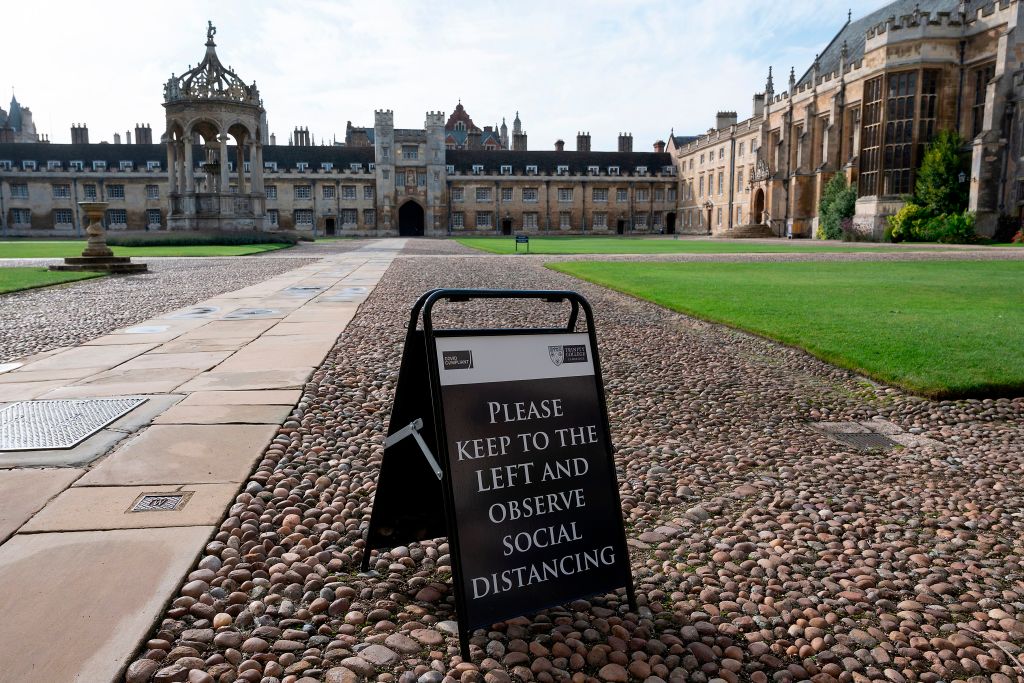It’s all change at Jesus College, Cambridge in England. The marble memorial to Tobias Rustat is coming down. His portrait is no longer displayed. And his name has been removed from the conferences held at the college. Yet for one emeritus fellow of Cambridge’s Magdalene College, these steps do not appear to go far enough. Colin Kolbert, a retired judge, said: ‘If he (Rustat) was so abhorrent, they should liquidate the present proceeds of his benefaction and give it to the descendants of the people he was oppressing.’ Is this really a wise idea?
That Tobias Rustat dealt in slaves is not disputed. He made the majority of his wealth as a courtier, and invested £400 in the Royal African Company. That Jesus College benefited from his wealth is not in question either: in 1671, he donated £2,030 to the College to fund eight scholarships. That this history implies the College should rid itself of the proceeds to fund the descendants of the wronged is less clear.
Whether a Cambridge college is best placed to address racial inequality in the United States of America (where many of those poor souls enslaved by the Royal African Company ended up) is almost irrelevant next to the question of whether that’s something it should be doing in the first place.
In 2020, there has been a steady stream of calls for the redistribution of wealth in line with a vision of historical justice. This idea — a bid to right the wrongs of the past — is one that is rapidly gaining in popularity. And those who have benefited from what is now deemed to be ill-gotten wealth are floundering for a response. Jesus College is only the latest organization to attempt to placate its critics. Yet even if Kolbert’s suggestion was implemented, the mob is unlikely to be content.
It’s worth pausing for a moment and thinking about the ethics underpinning these calls for redistribution. Why, precisely, should the students and scholars of Jesus College today bear responsibility for a centuries-old wrong? The idea that the son inherits the guilt of the father is not generally well received in our society, precisely because we have no part in the actions of our ancestors. We experience neither their suffering nor their triumphs. Yes, their actions have consequences for our lives. But establishing a principle whereby every action flowing from a past wrong is unraveled would leave us with no certain ground left to stand on.
If we are genuinely going to prosecute every past wrong, then the Khoisan might have some choice words for the Bantu, the Chinese for the Mongolians, and indeed the Mongolians for the Chinese. The Koh-i-Noor can make its way back through the chain of emperors and looters to the banks of the Krishna river. The treasures of Gotland can wend their way back to England. Spain can return its Aztec gold to the descendants of the Triple Alliance, who can return it to the descendants of its vassals.
Those of us with more Yamnaya DNA can compensate those with less, and the services of 23andMe can be employed to work out a precise ledger for our relative statuses as victim and oppressor in the grand accounting.
Alternatively, we can agree that this endless fascination with claiming the guilt of the past as our own is fundamentally the action of an unhealthy society, gripped by a lack of confidence in its own values, and obsessed with proving that nothing good has come of it.
[special_offer]
There is a limited amount of time and space with which to tell our national story, and a telling where we are ridden with guilt is more amenable to certain political dispositions than others. Supporters of this approach say that prosperity is stolen, not earned. They say that the West is wealthy because it exploited the third world. And that it owes it recompense, whether through direct payment of blood money, or through opening its doors. Whether or not this is actually true is immaterial; the point is the feeling of guilt that this engenders.
The blunt truth of the matter is that the history of mankind is remarkably bloody. It consists largely of one group of people acting appallingly to another. That we live in a time when this is less true than it once was does not imply greater responsibility for those left standing at the end of history.
If people want to make the case for development aid, or redistribution, or migration, then they should do so from consistent moral principles, rather than pleading a special case. No one should defend the involvement Rustat had with the Royal African Company. But then no one is. Instead of talking about reparations, it’s time for a new approach — one that acknowledges that the sins of the past can’t be made right by feeling guilty or redistributing wealth in the present.
This article was originally published onThe Spectator’s UK website.


















